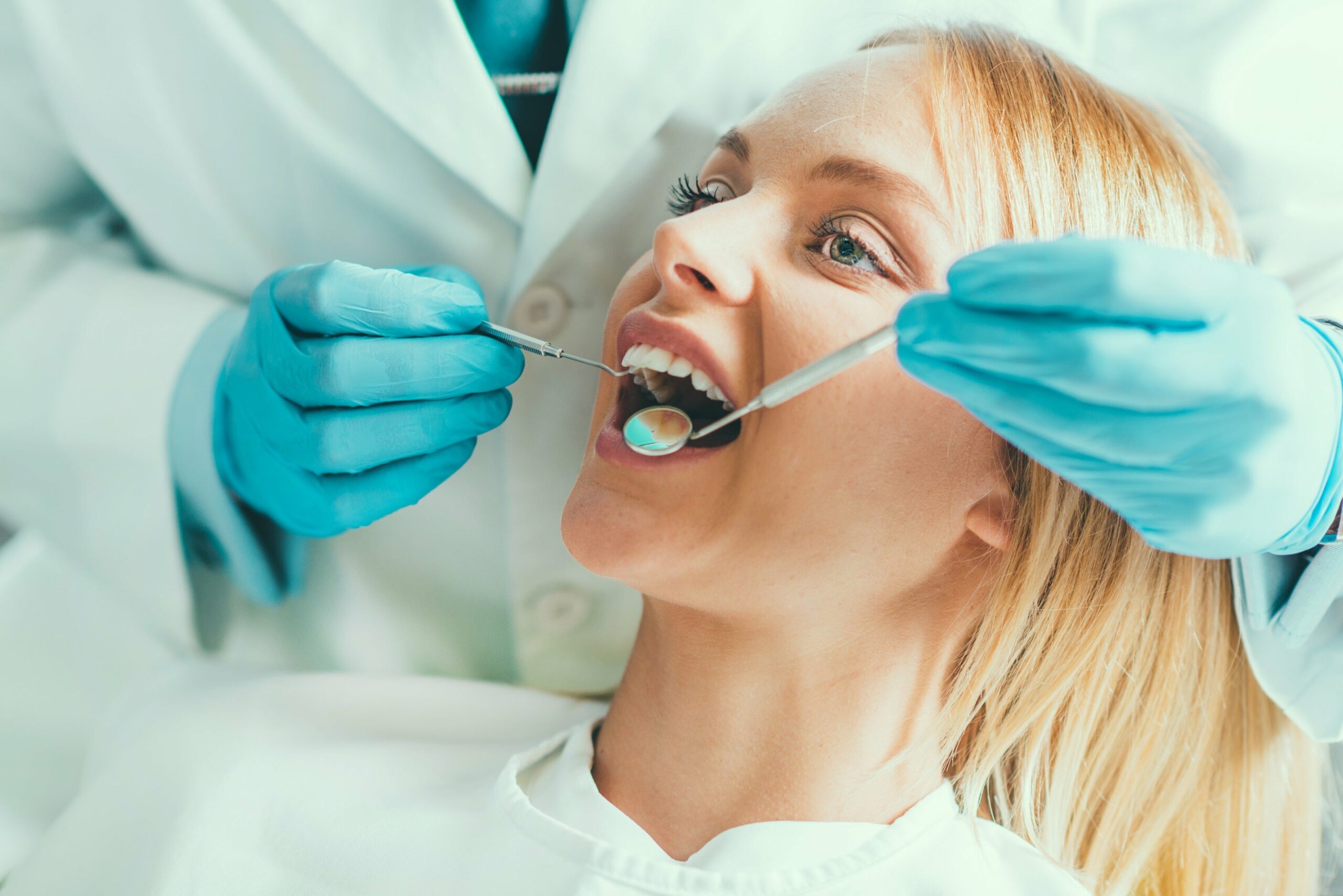- Phone: 1.404.373.4030
- Opening Hours: Mon-Fri 9AM-5PM Eastern

DISCLOSURE: Noelle Copeland RDH is an Oral Care Specialist and Dental Consultant who provides content for Brilliant Oral Care and Baby Buddy.
Diabetes affects the body and its ability to process sugar. The food we eat is converted into glucose (sugar) and used for energy by every cell in the body. In Type I diabetes, the body doesn’t make enough insulin, a hormone that carries glucose from our blood to the cells that need it for energy. In Type II diabetes, the body stops responding to insulin. Both Type 1 and Type 2 diabetes result in high blood sugar levels, which can cause problems with the eyes, nerves, kidneys, heart, and other parts of the body, including the mouth.
Estimates show that diabetes affects over 30 million Americans and worldwide over 400 million people. Evidence throughout the world suggests that having diabetes in any capacity increases your risk of developing periodontal disease. Inflammation plays a significant connection piece between diabetes and periodontal disease. Inflammation is a known cause of insulin resistance. Therefore, chronic periodontal disease can increase insulin resistance and worsen glycemic control when left untreated because it causes significant inflammation in the mouth.
In essence, diabetes can cause oral disease, and oral infection can make treating diabetes more complex and challenging.
One of the side effects often experienced by people with diabetes is xerostomia (dry mouth). This can be due to several factors, including medications, autoimmunity, smoking, aging, salivary gland dysfunction, stress, anxiety, or medical procedures like chemotherapy and radiation. In addition, with increased blood glucose levels, people living with diabetes may have more glucose in their saliva and feel thirsty often.
Our saliva is very protective and a vital necessity for oral health. Lack of saliva causes a significant increase in plaque accumulation, caries (especially root caries), oral pain and discomfort, difficulty swallowing and eating, and makes periodontal disease almost inevitable if left untreated.
Xylitol increases salivation and raises a falling oral pH to a neutral range within a few minutes of consumption. Saliva that has Xylitol in it is more alkaline than saliva stimulated by other products without Xylitol. When oral pH is above 7, calcium and phosphate salts in saliva start to move into the vulnerable parts of the enamel. This means soft, calcium-deficient enamel sites begin to harden again, remineralizing the tooth.
Xylitol also helps fight the yeast Candida albicans, reducing its ability to stick to a surface and cause infection. A chronically dry mouth can breed a rapid yeast infection quite fast, and it is more challenging to treat an oral yeast infection than it is to prevent it. Saliva also fights cavities by washing away food debris and restoring Ph balance.
Although having some plaque on the teeth is normal, when it gets excessive, our immune system starts attacking the bacteria living in the plaque by causing inflammation in the gum tissues, leading to gingivitis and periodontal disease. Therefore, from a dental point of view, the role of Xylitol as a stabilizer of salivary calcium and phosphate ions is significant for people with diabetes.
When properly used, Xylitol may help reduce the incidence of tooth decay while increasing saliva production.
The connection between oral health and systemic health is intricate, affecting one another directly and indirectly. For example, bacteria in the mouth can enter the bloodstream and cause disease or complicate immunocompromised persons already dealing with a disease or medical illness.
How you brush your teeth matters, maybe even more so than how much. Brushing your teeth with the proper technique is probably the most crucial detail in an effective home care routine, but the timing of your brushing routine is the second most important!
I think electric toothbrushes are an excellent choice for people with diabetes. Since people with diabetes struggle with dry mouth, they also struggle with higher indices of plaque accumulation, higher rates of gingivitis, and periodontal disease. So it just makes sense that their gums and teeth would benefit a lot from the lavage, vibrations, and dual cleaning provided by an electrically powered toothbrush.
Rechargeable electric toothbrushes are the best option when it comes to power and vibrations per minute. This means they remove more plaque, bacteria and provide more therapeutically to the mouth. Some of the benefits that come with purchasing a more expensive rechargeable electric toothbrush are:
An electric toothbrush with a 20K-50K frequency range is considered a high-frequency toothbrush and should be used by guiding it over the teeth. You are just driving the brush around the mouth. It’s so powerful that you don’t need any pressure or scrubbing motions to move the bristles back and forth to remove plaque; the high frequency drives the bristles for you, so all you have to do is get the brush in your mouth and aim it correctly. I think this makes it an excellent option for diabetic patients that struggle with oral care. Greater caution is required with high-frequency designs as they are easier to misuse and can cause gum tissue recession and sensitivity.
Things to consider
If you were looking for effective and healthy ways to establish oral care routines for yourself or a loved one, you found the right place. If you want to try the softest toothbrush for sensitive gums, look no further than Brilliant Oral Care. https://brilliantoralcare.com/collections/manual-toothbrushes
Be sure to check out our selection of specialty toothbrushes for those with special needs. This includes our toothbrush for sensitive gums and teeth, which we call the “special soft” brush for special circumstances.
https://brilliantoralcare.com/collections/manual-toothbrushes/products/brilliant-special-soft-toothbrush?variant=7463312654383
Finding the best toothbrush for sensitive gums doesn’t have to be difficult. When oral health and systemic health are balanced, so are the rest of the body. #BRUSHBRILLIANT
© 2021 Compac Industries. All rights reserved. This article provides information about “oral health topics” as expressed through the perspective and experience of the author. The information provided does not substitute professional advice or counsel, including diagnosing or treating any condition. Always seek the advice of your dentist or another qualified healthcare provider with any questions you may have regarding a medical condition, an oral condition, an illness, or treatment of any listed or unlisted situation above. By using this site, you signify your assent to our Terms and Conditions. If you do not agree to all of these Terms and Conditions, do not use this site.
Noelle Copeland RDH is an Oral Care Specialist and Dental Consultant who provides content for Brilliant Oral Care and Baby Buddy.


DISCLOSURE: Noelle Copeland RDH is an Oral Care Specialist and Dental Consultant who provides content

DISCLOSURE: Noelle Copeland RDH is an Oral Care Specialist and Dental Consultant who provides content

We believe that all people are fearfully and wonderfully made and designed in the womb for a grand purpose.
Useful Links
Copyright © 2023 Compac Industries | All Rights Reserved.